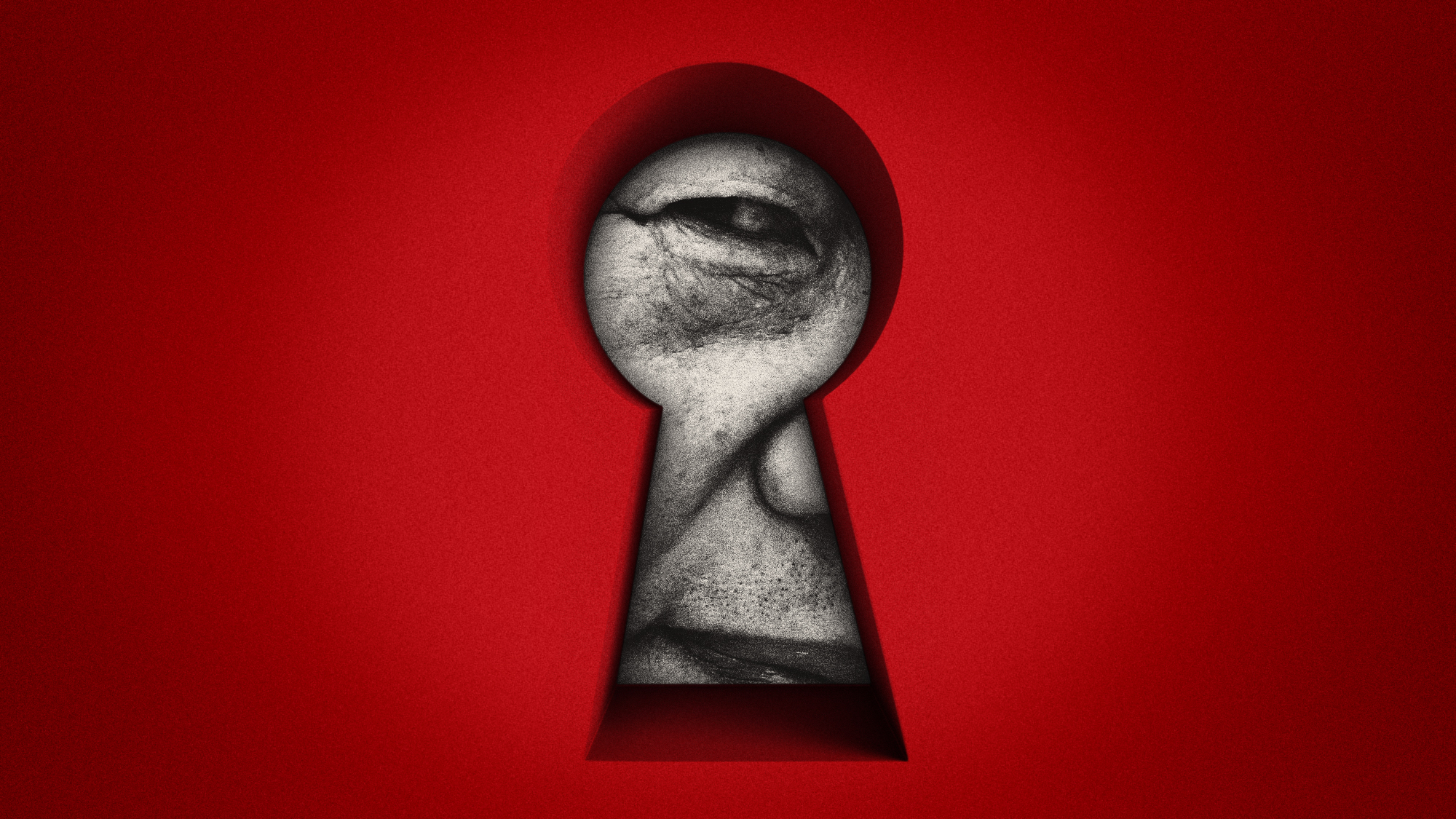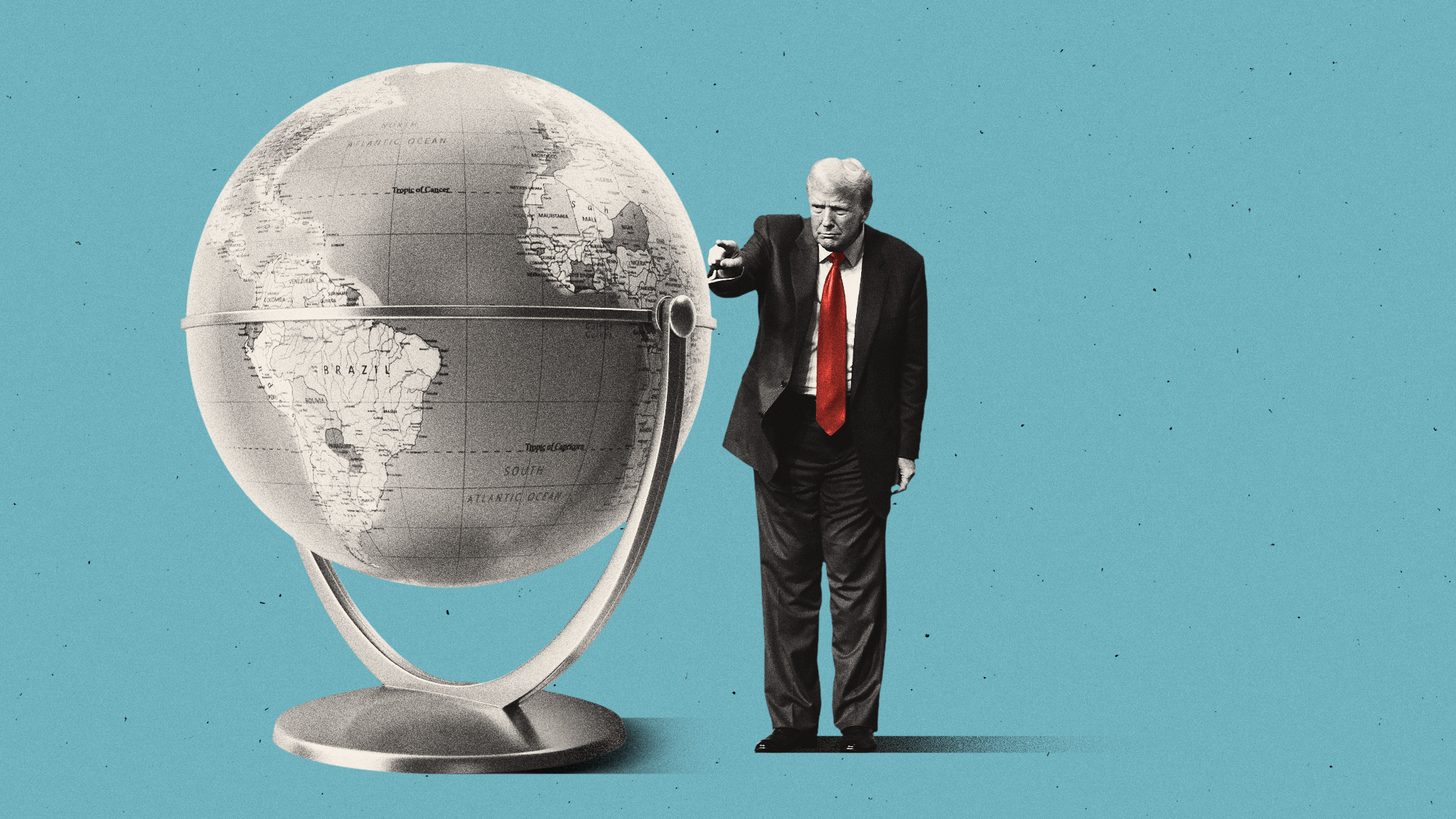What will Trump-Putin Ukraine peace deal look like?
US president 'blindsides' European and UK leaders, indicating Kyiv must concede seized territory and forget about Nato membership

A free daily email with the biggest news stories of the day – and the best features from TheWeek.com
You are now subscribed
Your newsletter sign-up was successful
In his election campaign Donald Trump vowed to end the war in Ukraine in his first 24 hours as president. But three weeks into his second term, he still "blindsided almost everyone" by announcing that he'd agreed with Vladimir Putin to begin talks to end the conflict, said Politico.
Trump posted on social media that he had had a "lengthy and highly productive" phone call with the Russian president. He and Putin have "agreed to have our respective teams start negotiations immediately".
But "stunned" European leaders, gathered in Brussels with Ukrainian counterparts for a Nato summit today, are "already trying to make clear that a decision can't be made above Ukrainian heads, not to mention their own".
The Week
Escape your echo chamber. Get the facts behind the news, plus analysis from multiple perspectives.

Sign up for The Week's Free Newsletters
From our morning news briefing to a weekly Good News Newsletter, get the best of The Week delivered directly to your inbox.
From our morning news briefing to a weekly Good News Newsletter, get the best of The Week delivered directly to your inbox.
What did the commentators say?
"A single phone call will not magically end the war in Ukraine," said the BBC's Russia editor Steve Rosenberg. But the telephone conversation with Trump is a "diplomatic victory" for Putin, who in many ways has "already got what he wants" – the opportunity to "negotiate directly" with the US.
Russian officials claim Moscow is "ready for talks", but refer to Putin's "so-called peace proposal" of 2024, under which Russia would "get to keep all the Ukrainian territory it has seized, plus some more land still under Ukrainian control". Ukraine would also not be permitted to join Nato. This "reads more like an ultimatum" than a peace deal.
Trump later spoke to Ukrainian President Volodymyr Zelenskyy, but "was non-committal about whether Ukraine would be an equal participant" in negotiations, said MailOnline.
Pete Hegseth, the US defence secretary, also indicated that Washington is "intent on getting Europe to take on most of the financial and military burden of defending Ukraine, including a possible peacekeeping force that would not include US soldiers". Hegseth, who is also attending the Nato summit, suggested that troops be deployed as "a non-Nato mission". He also described the aim of Ukraine getting back all the territory seized by Russia since 2014 as "unrealistic".
A free daily email with the biggest news stories of the day – and the best features from TheWeek.com
These are all dividing lines with Europe. Nato's position, endorsed by Labour in the UK-Ukraine 100-year partnership, is still that Kyiv is on an "irreversible" path to joining the military alliance. The UK also signed a joint statement with EU allies last night, reiterating that "Ukraine and Europe must be part of any negotiations".
British defence officials "reacted furiously to claims Ukraine will be forced to give up land to Russia", said The Independent. "That is what I am hearing of the US administration – 'the bastards are going to do this'", said BBC Newsnight's Nicholas Watt.
Another possible flashpoint is China, Russia's strongest backer, which is "pushing to play a role" in any peacekeeping efforts, sources in Beijing and Washington told The Wall Street Journal. That Chinese "offer" is being met with "deep scepticism" in both the US and Europe.
Others have accused Trump of undermining Ukraine's leverage before negotiations have started. "There's been some very, very hefty concessions made without much being asked for in return," said the former head of MI6, Alex Younger.
But this is "not about territory", he told BBC Radio 4's "Today" programme. "It's about sovereignty. Russia wants Ukraine to be a non-country, and if Donald Trump gives that away, we've lost."
What next?
The head of Nato, Mark Rutte, is urging allies to ramp up their military support for Kyiv, as well as their own defence spending. UK Defence Secretary John Healey said that the focus "for now" should be on ensuring Ukraine is in a strong position ahead of peace talks.
Trump said he and Putin would "meet also probably in Saudi Arabia the first time", although didn't specify when. US Vice President J.D. Vance is also expected to meet Zelenskyy at the Munich Security Conference tomorrow.
After speaking to Trump, Zelenskyy said: "Together with the US, we are charting our next steps to stop Russian aggression and ensure a lasting, reliable peace. As President Trump said, let's get it done."
Harriet Marsden is a senior staff writer and podcast panellist for The Week, covering world news and writing the weekly Global Digest newsletter. Before joining the site in 2023, she was a freelance journalist for seven years, working for The Guardian, The Times and The Independent among others, and regularly appearing on radio shows. In 2021, she was awarded the “journalist-at-large” fellowship by the Local Trust charity, and spent a year travelling independently to some of England’s most deprived areas to write about community activism. She has a master’s in international journalism from City University, and has also worked in Bolivia, Colombia and Spain.
-
 Tourangelle-style pork with prunes recipe
Tourangelle-style pork with prunes recipeThe Week Recommends This traditional, rustic dish is a French classic
-
 The Epstein files: glimpses of a deeply disturbing world
The Epstein files: glimpses of a deeply disturbing worldIn the Spotlight Trove of released documents paint a picture of depravity and privilege in which men hold the cards, and women are powerless or peripheral
-
 Jeff Bezos: cutting the legs off The Washington Post
Jeff Bezos: cutting the legs off The Washington PostIn the Spotlight A stalwart of American journalism is a shadow of itself after swingeing cuts by its billionaire owner
-
 Munich Security Conference: a showdown between Europe and Trump?
Munich Security Conference: a showdown between Europe and Trump?Today’s Big Question Report suggests European leaders believe they can no longer rely on the US for military support – but decoupling is easier said than done
-
 What is ‘Arctic Sentry’ and will it deter Russia and China?
What is ‘Arctic Sentry’ and will it deter Russia and China?Today’s Big Question Nato considers joint operation and intelligence sharing in Arctic region, in face of Trump’s threats to seize Greenland for ‘protection’
-
 Is the Chinese embassy a national security risk?
Is the Chinese embassy a national security risk?Today’s Big Question Keir Starmer set to approve London super-complex, despite objections from MPs and security experts
-
 New START: the final US-Russia nuclear treaty about to expire
New START: the final US-Russia nuclear treaty about to expireThe Explainer The last agreement between Washington and Moscow expires within weeks
-
 What would a UK deployment to Ukraine look like?
What would a UK deployment to Ukraine look like?Today's Big Question Security agreement commits British and French forces in event of ceasefire
-
 Would Europe defend Greenland from US aggression?
Would Europe defend Greenland from US aggression?Today’s Big Question ‘Mildness’ of EU pushback against Trump provocation ‘illustrates the bind Europe finds itself in’
-
 Greenland, Colombia, Cuba: where is Donald Trump eyeing up next?
Greenland, Colombia, Cuba: where is Donald Trump eyeing up next?Today's Big Question Ousting Venezuela’s leader could embolden the US administration to exert its dominance elsewhere
-
 Did Trump just end the US-Europe alliance?
Did Trump just end the US-Europe alliance?Today's Big Question New US national security policy drops ‘grenade’ on Europe and should serve as ‘the mother of all wake-up calls’